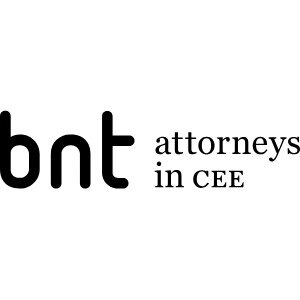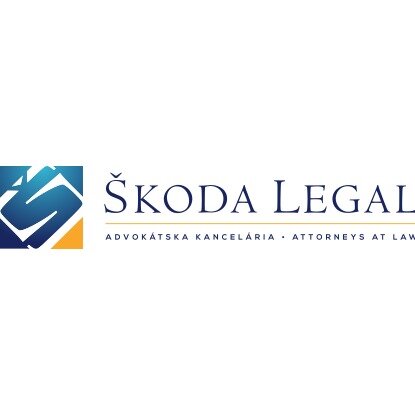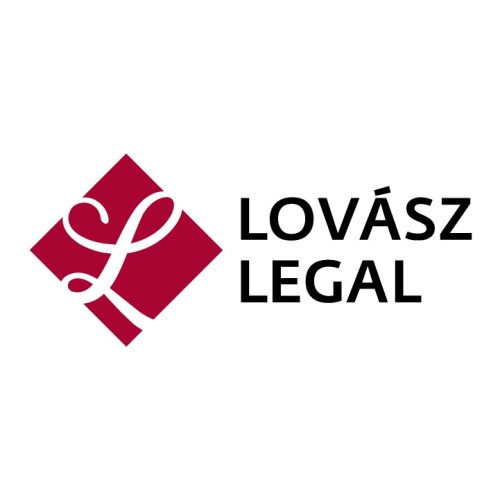Best Restructuring & Insolvency Lawyers in Slovakia
Share your needs with us, get contacted by law firms.
Free. Takes 2 min.
Or refine your search by selecting a city:
List of the best lawyers in Slovakia
About Restructuring & Insolvency Law in Slovakia
Restructuring and insolvency law in Slovakia governs the legal processes for financially distressed companies and individuals who are unable to meet their financial obligations. These legal frameworks aim to offer a balanced solution between rescuing viable businesses, maximizing creditor recoveries, and ensuring orderly market exit for insolvent entities. The key procedures are restructuring, which focuses on revitalizing struggling businesses, and insolvency, which concentrates on the liquidation and fair distribution of assets among creditors. These procedures are regulated by Act No. 7/2005 Coll. on Bankruptcy and Restructuring and amended legislation, providing a comprehensive mechanism for resolving financial crises in Slovakia.
Why You May Need a Lawyer
Navigating restructuring and insolvency proceedings is complex and highly regulated. You may require a legal specialist for several reasons, including:
- Advising businesses or entrepreneurs facing financial difficulties
- Negotiating with creditors or debtors to avoid formal proceedings
- Preparing or reviewing restructuring proposals and plans
- Representing creditors seeking to recover debts from insolvent debtors
- Filing for bankruptcy or responding to insolvency petitions
- Protecting personal and business assets under threat
- Resolving disputes over claims, debts, or asset distribution
- Ensuring compliance with statutory duties and avoiding managerial liability
- Navigating cross-border insolvency situations involving Slovak and foreign law
Local Laws Overview
Restructuring and insolvency in Slovakia are mainly governed by Act No. 7/2005 Coll. on Bankruptcy and Restructuring (as amended). Key aspects of local law include:
- Distinction between restructuring and bankruptcy: Restructuring aims to rescue a viable business and allow it to continue, whereas bankruptcy leads to liquidation and asset distribution.
- Initiation of proceedings: Proceedings can be started voluntarily by the debtor or involuntarily by creditors under specific conditions.
- Creditor hierarchy: Slovak law classifies creditor claims and sets priorities for payment from available assets.
- Role of the court: The court appoints trustees or administrators, oversees proceedings, and makes key rulings on disputed matters.
- Insolvency tests: The law defines when a debtor is insolvent, including balance sheet insolvency and inability to pay debts as they fall due.
- Managerial liability: Directors and managers have duties to file for insolvency on time or face personal liability for late filings.
- Creditor committees: Creditors may form committees to supervise proceedings and influence key decisions.
- Cross-border insolvency: EU regulations and local law provide frameworks for cross-border insolvency cases.
Frequently Asked Questions
What is the difference between restructuring and bankruptcy in Slovakia?
Restructuring is a process designed to save a business in financial trouble and allow it to continue operating through a negotiated plan with creditors. Bankruptcy, on the other hand, is focused on liquidating the debtor's assets to pay creditors in a formal winding-up procedure.
Who can initiate restructuring or bankruptcy proceedings?
Both the debtor and the creditors may file for insolvency or restructuring. The company management must initiate proceedings if they become aware the company is insolvent, or they risk personal liability.
What are the main steps in restructuring proceedings?
Main steps include filing a petition, court appointment of a restructuring trustee, proposing and approving a restructuring plan with creditors, and implementing the plan under court supervision.
How are creditors paid in insolvency or restructuring?
Creditors are paid based on a statutory order of priority defined by law. Secured creditors and insolvency costs are typically at the top, followed by unsecured creditors and subordinated claims.
What is the consequence for company directors if insolvency is not filed on time?
If directors delay filing for insolvency when legally required, they may be held personally liable for damages and may face disqualification from holding management positions.
Can individuals file for personal bankruptcy in Slovakia?
Yes, individuals facing insurmountable personal debt can file for personal bankruptcy, also known as debt relief, under specific conditions set by Slovak law.
Are restructuring and insolvency proceedings public?
Yes, insolvency and restructuring cases are recorded in the Slovak Insolvency Register, which is publicly accessible. Certain court documents and notifications are available to interested parties.
How long do insolvency proceedings take?
The timeline varies depending on complexity and size of the estate but bankruptcy liquidations may take months to several years, while restructuring procedures may be completed within a year if the plan is accepted.
Can assets be sold during restructuring or insolvency?
Yes, but asset sales usually require the approval of the court or creditors and must adhere to procedures ensuring fair market value and legal scrutiny.
What happens to employment contracts in case of insolvency?
Employment contracts may continue if the business operates under restructuring. In liquidation, employees may be terminated, but claims for unpaid wages are prioritized by law and may be partially covered by the Slovak Guarantee Fund.
Additional Resources
If you need further guidance or official information, you may consider contacting the following resources:
- District and Regional Courts - for case filings and official information on ongoing cases
- Slovak Ministry of Justice - provides general information and resources on insolvency
- Slovak Bar Association - find qualified legal professionals specialized in restructuring and insolvency
- Slovak Insolvency Register - public register for insolvency filings and proceedings
- Slovak Chamber of Trustees - professional association for insolvency trustees and administrators
- Financial administration authorities - for advice on tax and asset matters in insolvency scenarios
Next Steps
If you are facing financial difficulties or believe you may need to initiate restructuring or insolvency proceedings in Slovakia, it is important to seek timely legal advice. Consider the following steps:
- Assess your financial situation and gather relevant documents, including financial statements and debt records
- Consult a lawyer experienced in restructuring or insolvency law for an assessment of your options
- Communicate openly with creditors to explore informal solutions, if possible
- Prepare the necessary filings or applications in accordance with legal requirements
- Cooperate fully with appointed trustees, administrators, and courts throughout proceedings
Lawzana helps you find the best lawyers and law firms in Slovakia through a curated and pre-screened list of qualified legal professionals. Our platform offers rankings and detailed profiles of attorneys and law firms, allowing you to compare based on practice areas, including Restructuring & Insolvency, experience, and client feedback.
Each profile includes a description of the firm's areas of practice, client reviews, team members and partners, year of establishment, spoken languages, office locations, contact information, social media presence, and any published articles or resources. Most firms on our platform speak English and are experienced in both local and international legal matters.
Get a quote from top-rated law firms in Slovakia — quickly, securely, and without unnecessary hassle.
Disclaimer:
The information provided on this page is for general informational purposes only and does not constitute legal advice. While we strive to ensure the accuracy and relevance of the content, legal information may change over time, and interpretations of the law can vary. You should always consult with a qualified legal professional for advice specific to your situation.
We disclaim all liability for actions taken or not taken based on the content of this page. If you believe any information is incorrect or outdated, please contact us, and we will review and update it where appropriate.
Browse restructuring & insolvency law firms by city in Slovakia
Refine your search by selecting a city.














